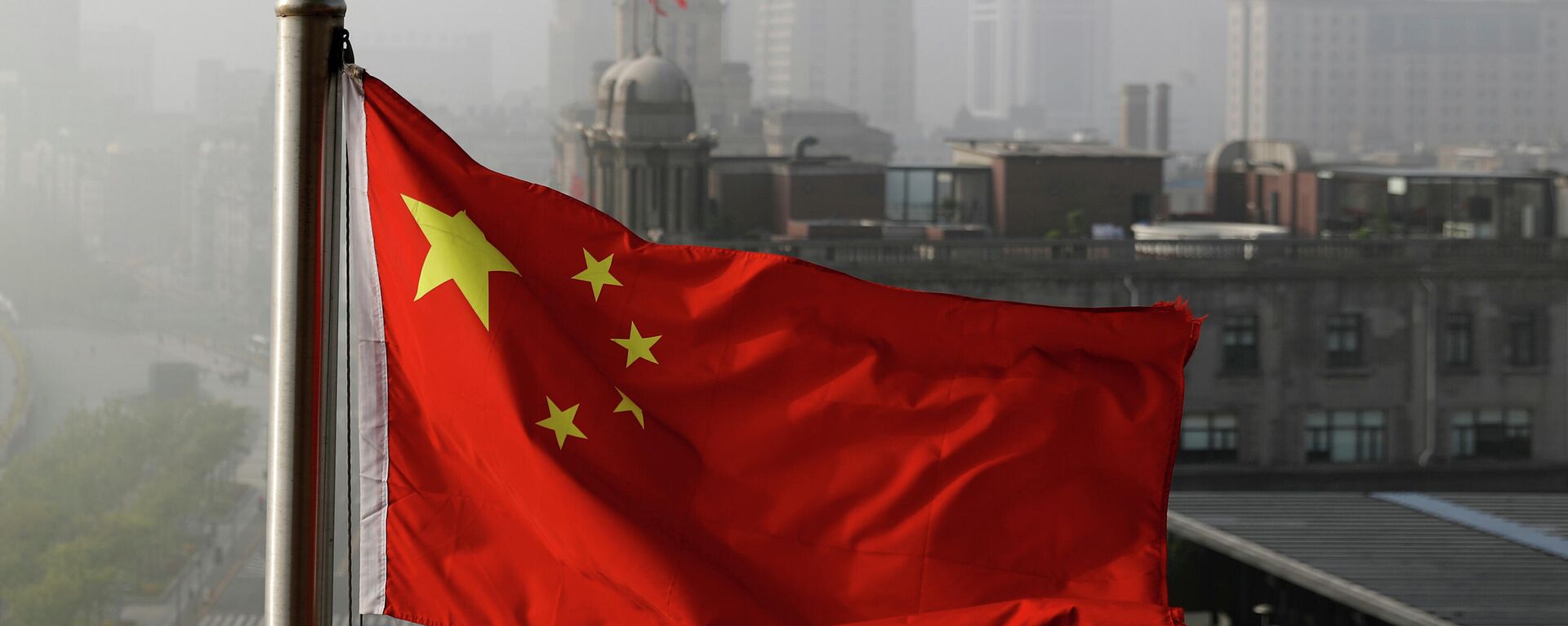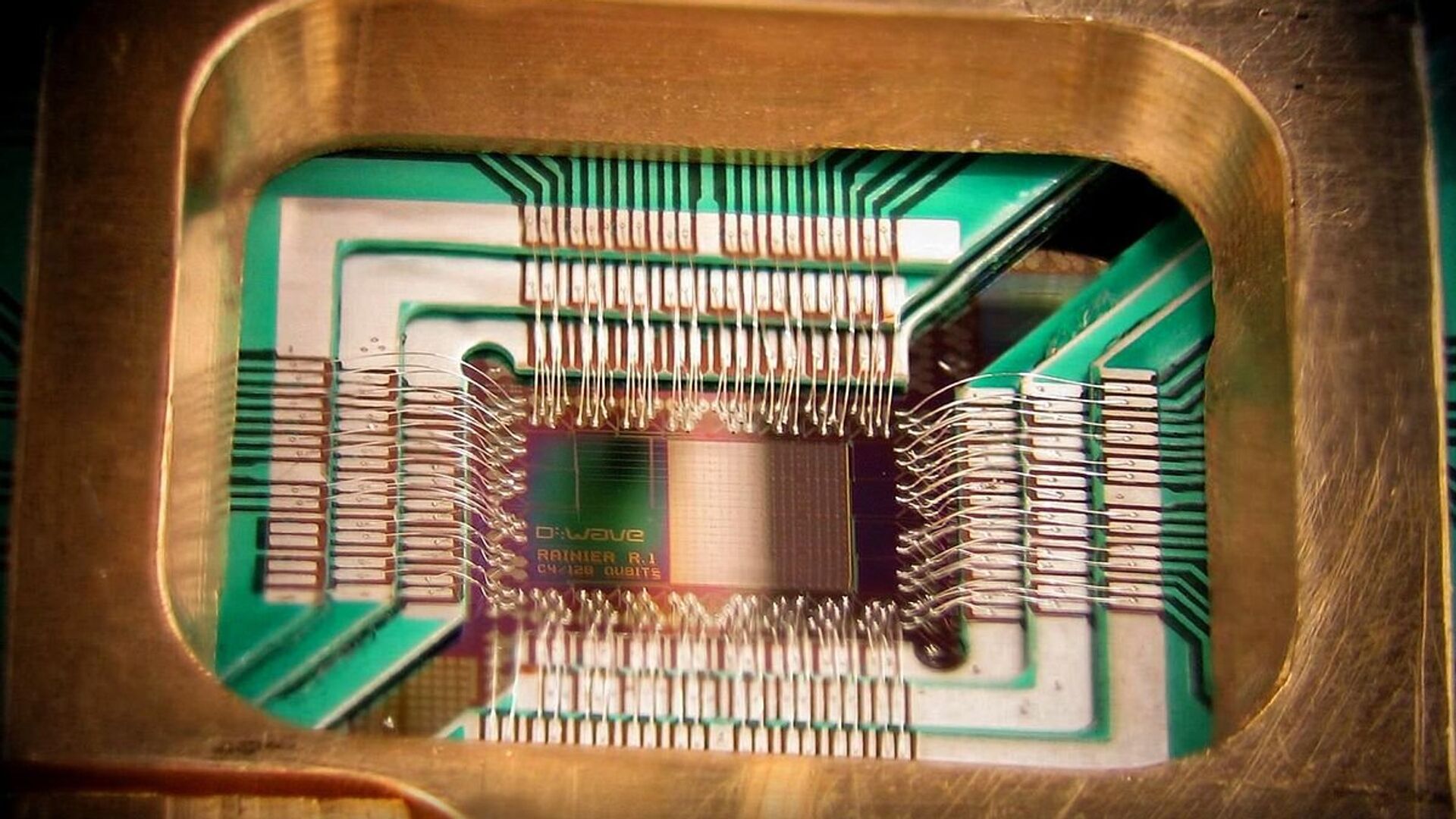https://sputnikglobe.com/20230620/intel-inks-hefty-german-plant-deal-as-us-seeks-to-bring-back-chip-industry-lost-to-asia-1111323921.html
Intel Inks Hefty German Plant Deal as US Seeks to ‘Bring Back Chip Industry Lost to Asia’
Intel Inks Hefty German Plant Deal as US Seeks to ‘Bring Back Chip Industry Lost to Asia’
Sputnik International
The US tech giant reportedly postponed the start of the Magdeburg plant’s construction in late 2022 because of “economic headwinds” as it asked for more funds.
2023-06-20T12:57+0000
2023-06-20T12:57+0000
2023-06-20T12:57+0000
economy
us
germany
intel
plant
construction
chipmaker
https://cdn1.img.sputnikglobe.com/img/105351/85/1053518556_0:77:1200:752_1920x0_80_0_0_6bce193d18e55eb07d8199e9320f2f6d.jpg
Germany and Intel have clinched a deal on the US chipmaker receiving an alleged subsidy package of €10 billion ($10.91 billion) to build its planned factory in the eastern German city of Magdeburg.The signing ceremony in Berlin, which capped months of talks, was attended by German Chancellor Olaf Scholz and Intel chief executive Pat Gelsinger.Intel said in a statement that the so-called “Silicon Junction” site, which will include two fabrication facilities, aims to create end-to-end semiconductor manufacturing infrastructure, in line with Germany’s push for a more resilient supply chain.According to the statement, the first plant is expected to enter production in four to five years following the European Commission’s approval. Last year’s planned start of construction was finally delayed due to purported “economic headwinds.”He spoke as Berlin is pumping billions of euros in subsidies to entice tech giants to Germany amid concerns over supply chain fragility and dependence on South Korea and Taiwan for chips.Gelsinger, for his part, told a UK news agency that the gap between what Germany had proposed and what Intel needed was too large but his request was to be cost competitive.This comes amid the ongoing competition between the US and China to prevail in the prospering global chip industry, which may grow to $1.4 trillion in revenue by 2030, a race that is expected to continue in the years ahead. According to the White House, the US currently produces roughly 10%, while China accounts for at least 15% of semiconductor-related global production.Washington is striving to win the race by imposing further restrictions and expanding investments in the domestic chip industry. In October 2022, the Biden administration rolled out the most extensive restrictions to date on Beijing's chip manufacturing industry, requiring licenses for those companies that export chips to China using US tools or software, no matter where they're made in the world.
https://sputnikglobe.com/20221007/chinese-embassy-calls-us-moves-to-restrict-chinas-access-to-chips-sci-tech-hegemony-1101621005.html
germany
Sputnik International
feedback@sputniknews.com
+74956456601
MIA „Rossiya Segodnya“
2023
Oleg Burunov
https://cdn1.img.sputnikglobe.com/img/07e4/09/0b/1080424846_0:0:2048:2048_100x100_80_0_0_3d7b461f8a98586fa3fe739930816aea.jpg
Oleg Burunov
https://cdn1.img.sputnikglobe.com/img/07e4/09/0b/1080424846_0:0:2048:2048_100x100_80_0_0_3d7b461f8a98586fa3fe739930816aea.jpg
News
en_EN
Sputnik International
feedback@sputniknews.com
+74956456601
MIA „Rossiya Segodnya“
Sputnik International
feedback@sputniknews.com
+74956456601
MIA „Rossiya Segodnya“
Oleg Burunov
https://cdn1.img.sputnikglobe.com/img/07e4/09/0b/1080424846_0:0:2048:2048_100x100_80_0_0_3d7b461f8a98586fa3fe739930816aea.jpg
intel-germany deal, intel-berlin accord on chip plant construction, germany’s subsidy package to intel
intel-germany deal, intel-berlin accord on chip plant construction, germany’s subsidy package to intel
Intel Inks Hefty German Plant Deal as US Seeks to ‘Bring Back Chip Industry Lost to Asia’
The US tech giant reportedly postponed the start of the Magdeburg plant’s construction in late 2022 because of “economic headwinds” as it asked for more funds.
Germany and Intel have clinched a deal on
the US chipmaker receiving an alleged subsidy package of
€10 billion ($10.91 billion) to build its planned factory in the eastern German city of Magdeburg.
The signing ceremony in Berlin, which capped months of talks, was attended by German Chancellor Olaf Scholz and Intel chief executive Pat Gelsinger.
While Intel earlier confirmed the agreement, the company declined to provide a specific amount for the financial aid, only saying that it plans to invest about €30 billion ($32.7 billion) in the “leading-edge wafer fabrication site” in Magdeburg.
Intel said in a statement that the so-called “Silicon Junction” site, which will include two fabrication facilities, aims to create end-to-end
semiconductor manufacturing infrastructure, in line with Germany’s push for a more resilient supply chain.
According to the statement, the first plant is expected to enter production in four to five years following the European Commission’s approval. Last year’s planned start of construction was finally delayed due to purported “economic headwinds.”
Scholz has, meanwhile, called the Berlin-Intel deal “an important step for Germany as a high-tech production location — and for our [his country’s] resilience.”
He spoke as Berlin is pumping billions of euros in subsidies to entice tech giants to Germany amid concerns over supply chain fragility and dependence on South Korea and Taiwan for chips.
Gelsinger, for his part, told a UK news agency that the gap between what Germany had proposed and what Intel needed was too large but his request was to be cost competitive.
"We lost this [chip] industry to Asia, we have to be competitive if we're going to bring it back," he underscored.
This comes amid the ongoing
competition between the US and China to prevail in the prospering global chip industry, which may grow to
$1.4 trillion in revenue by 2030, a race that is expected to continue in the years ahead. According to the White House, the US currently produces roughly
10%, while China accounts for at least
15% of semiconductor-related global production.

7 October 2022, 20:13 GMT
Washington is striving to win the race by imposing further restrictions and expanding investments in the domestic chip industry. In October 2022, the Biden administration rolled out the most extensive restrictions to date on
Beijing's chip manufacturing industry, requiring licenses for those companies that export chips to China using US tools or software, no matter where they're made in the world.




